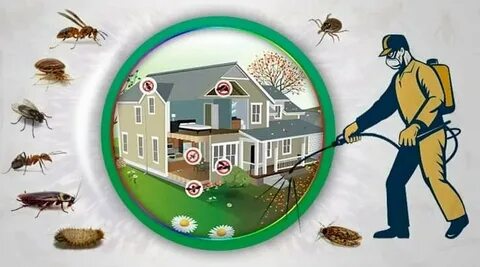Pest infestations are an unsettling and distressing issue for many tenants in the UK. Whether it’s rats in the loft, cockroaches in the kitchen, or bedbugs in the bedroom, pests pose serious health risks and undermine the comfort of your home. Unfortunately, infestations in rental properties are not uncommon—especially in poorly maintained homes.
If your landlord is failing to address a pest problem in your home, you have legal rights. The Housing Disrepair UK specialises in helping tenants like you get compensation and compel landlords to carry out necessary repairs and extermination services.
What Constitutes a Pest Infestation?
A pest infestation goes beyond the odd mouse or insect. It refers to the persistent presence of unwanted animals or insects that affect the habitability and hygiene of your home. Common pests found in UK rented properties include:
- Rats and mice
- Cockroaches
- Bedbugs
- Fleas
- Wasps
- Ants
- Silverfish
These pests not only cause property damage but can also spread disease and cause allergic reactions. An infestation is a clear sign of disrepair and poor property maintenance, which is the landlord’s legal responsibility to address.
Common Causes of Pest Infestations in Rental Homes
Infestations are often a symptom of deeper structural issues or hygiene neglect. Some common causes include:
- Cracks in walls and floors that allow entry
- Poor waste disposal or blocked drains
- Leaking pipes and damp environments
- Broken windows or doors providing easy access
- Unclean communal areas in shared housing
In multi-unit buildings or HMOs (Houses in Multiple Occupation), pest control becomes even more challenging if common areas are not regularly maintained by the landlord.
Legal Responsibilities of Landlords
UK law requires landlords to provide and maintain homes that are fit for human habitation. This includes:
- Keeping the property free from health hazards
- Ensuring proper sanitation and hygiene
- Taking immediate action when pest infestations are reported
Under the Landlord and Tenant Act 1985 and the Homes (Fitness for Human Habitation) Act 2018, landlords are obligated to fix conditions that lead to infestations. If they fail to act in a reasonable time, they can be held legally accountable.
Health Risks Associated with Pest Infestations
Living with pests is more than just an inconvenience. Infestations can cause serious physical and mental health issues, such as:
- Respiratory illnesses from droppings or allergens (especially rodents or cockroaches)
- Skin irritation and allergic reactions from fleas, mites, or bedbugs
- Contamination of food by insects or rodents
- Infections and diseases such as salmonella or leptospirosis
- Stress and sleep disruption, especially in cases of bedbug or rodent infestations
Children, elderly individuals, and those with compromised immune systems are especially vulnerable to these health risks.
What to Do if You Discover an Infestation
If you suspect your home has a pest infestation, act quickly and methodically:
- Document the evidence with photographs, videos, and written logs of sightings, droppings, or damage.
- Notify your landlord in writing as soon as possible. Always keep a record of communication.
- Request professional pest control services and any repairs needed to eliminate the source.
- Report to your local council if your landlord fails to respond within a reasonable time.
- Contact a legal expert such as the Housing Disrepair Team UK to begin a claim if the problem persists.
Avoid using over-the-counter pesticides without identifying the source or without professional advice. DIY solutions rarely solve the root of the problem.
Can Tenants Be Held Responsible?
Some landlords may blame tenants for pest issues, especially if they claim the home has not been kept clean. While tenants have a duty to keep the property reasonably hygienic, the primary responsibility for structural faults and infestations lies with the landlord.
Tenants are not responsible for pests resulting from:
- Leaks or structural holes
- Damaged flooring or insulation
- Shared building pests
- Unemptied communal bins or drains
If your landlord is not fulfilling their obligations, legal action may be necessary.
Claiming Compensation for Pest Infestations
If your landlord has ignored your pest complaints or failed to take appropriate action, you may be entitled to compensation for:
- Health issues caused by the infestation
- Damage to your belongings or furniture
- Disruption to your daily life and well-being
- Time spent unable to use certain rooms
- Financial loss from temporary relocation or pest control
Every claim is assessed individually, based on the severity and duration of the problem. The Housing Disrepair Team UK can guide you through every step.
How the Housing Disrepair Team UK Can Help
When you’re dealing with a landlord who won’t act, you need support. The Housing Disrepair Team UK can:
- Assess the extent of the infestation and underlying issues
- Collect evidence and arrange inspections
- Communicate directly with your landlord
- File a disrepair claim on your behalf
- Help you secure compensation—all on a no-win, no-fee basis
We specialise in disrepair claims and are dedicated to ensuring tenants live in safe, pest-free homes.
Preventative Measures Tenants Can Take
While the responsibility lies with the landlord, tenants can take small steps to help prevent attracting pests:
- Keep food stored in airtight containers
- Take out rubbish regularly and avoid clutter
- Use sealants to block small entry points
- Avoid leaving pet food out overnight
- Report leaks, broken windows, or ventilation issues immediately
However, these preventative steps do not substitute for proper repairs and pest control services that landlords must provide.
Conclusion
Pest infestations in rental homes are not just a nuisance—they’re a health risk and a legal issue. If your landlord is failing to act, you’re not alone. The law protects tenants from being forced to live in unsafe and unsanitary conditions.
Contact us at Housing Disrepair Team UK today to understand your rights, make a claim, and hold your landlord accountable. You deserve to live in a home that’s clean, safe, and pest-free.











Leave a Reply